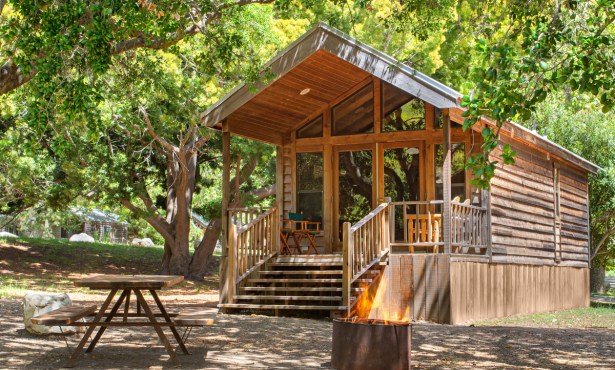Deprivations of the Special Housing Unit
Imprisoned in a Tiny Cell 24 Hours a Day

The Special Housing Unit (known as the “SHU” or the “hole”) is a mythical place in prison. Only a small percentage of the inmate population has ever visited there, but stories of the deprivation abound. It is the disciplinary unit used by the prison to punish offenders and to strike fear (and therefore compliance) into the general population. It is the ultimate punitive remedy for inmates who assault other inmates or staff, or who find a way to subvert the system to get drugs to feed their habits. Occasionally it is used as an overnight consequence for someone refusing to follow orders, and one night is usually enough to effect the desired compliance.

The SHU is like a catacomb. The hallways are long, very narrow and labyrinthine, brightly lit 24 hours a day by florescent lights. They echo with each footfall and with the jolting clang of the bolts of steel or barred doors being locked or unlocked or the booming voices of the guards. The pale grey cells are lined up in long rows with thick solid-steel doors, each with a four-inch by two-foot window covered in steel mesh. Each door also has a small round steel-mesh-covered hole for communication between its occupant and the guards outside in the hall. There is a slot in each door covered by its own padlocked steel cover for use in passing meal trays into the cell or for the inmates to pass their wrists through to be handcuffed prior to being taken from the cell.
Inside, the cells are a couple of feet smaller than the cells on the regular units, about 7×9. They are also pale grey with bare concrete floors and steel sheet-metal walls and ceiling. There is a square fluorescent light fixture covered in steel mesh attached to the ceiling. In the cell are two bunks, a 1×3-foot steel desk with a steel seat that rotates out on a bar, and a combination stainless steel sink and toilet. There are two vents high up on the wall, one to let in frigid air and one to let the air out. On the floor next to the toilet there is a paper that has been folded in fourths lengthwise upon which has been written the word “FLUSH.” This is used to pass through the slit between the door and the door jamb to let the next passing guard know to flush your toilet. There is no mechanism to flush your own toilet inside the cell. A similar system is in place to turn the light on or off. The same slit between the door and jamb is used to send requests via a “cop-out” form to the guards or to pass through letters that the inmate is either sending or receiving.
Visits to the recreation deck are scheduled for an hour a day from Monday through Friday (although I was allowed only one visit to the rec-deck in the two weeks I was in the SHU). Other than visits to the shower on Mondays, Wednesdays, and Fridays, I spent the rest of my time locked in the cell 24 hours a day. Even to visit the shower, the inmate has to be handcuffed through the slot in his cell door before it is opened, and he has to be locked in the shower before passing his wrists out through the slot on the shower door to have the handcuffs removed.
I was allowed one phone call per day at the guards’ discretion, and I received that privilege solely based on whether or not a particular guard cared to wheel the phone cart up to my slot or not. Some guards were adamant that if I chose to have my shower on a given day, that was enough privilege for me and I couldn’t use the phone as well.
I had a cell mate, Tim, for my entire two weeks in the SHU. I was grateful that he was an agreeable man, and we were both as respectful of each others’ privacy as much as is possible in a tight living space.
After five days in the SHU, the day for my hearing arrived, and a guard came to my cell door at 8:40 on Tuesday morning to advise me to be ready to be transferred to my meeting. About 15 minutes later, the same guard returned to say I would have to wait a few minutes because my paperwork had to be changed. No one returned for the rest of the day. That night I was given a revised incident report which said the same thing as the original report with just a few words changed. I was told I would have to wait for my hearing until the following Tuesday when the hearing officer returned.
It is a psychological exercise to adjust to the deprivation of life in the “hole.” One is left with little more than one’s mental ramblings for long periods. The activities left available are reading, writing, eating, and thinking. The SHU is generally quieter than the regular units, the long periods of silence broken only by the occasional conversations of guards with inmates in adjoining cells (their necessarily booming voices echoing in the hallway) or when some particularly troubled inmate is banging his fists or feet against the steel walls or door of his cell in a fit of anger.
Thirteen days after arriving in the SHU, I finally had my hearing. I was called out on a Tuesday afternoon after being threatened with another week in the hole because the hearing officer was angry that he had received so many letters from supporters advocating for my release. He didn’t appreciate people telling him “how to do his job.” After a short but tense hearing, my charges were “expunged” with no explanation as to why a card sent to me had been claimed to have been “soaked in amphetamines.” I was released from the SHU the day after my hearing with a stern warning that I was to be a “model citizen” and that if one more incident or report on me was received, the hearing officer would “do with me what he should have done in the first place.”
I returned to my previous unit and was received by my former inmates with genuine compassion, even from men I had not previously had conversations with. The environment on my unit which had previously seemed confining, now felt like freedom.
Dennis Apel served four months in the federal Metropolitan Detention Center in Los Angeles, having been found guilty of crossing the “green line” during peaceful protest at Vandenberg Air Force Base, and then refusing to comply with supervised probation.



